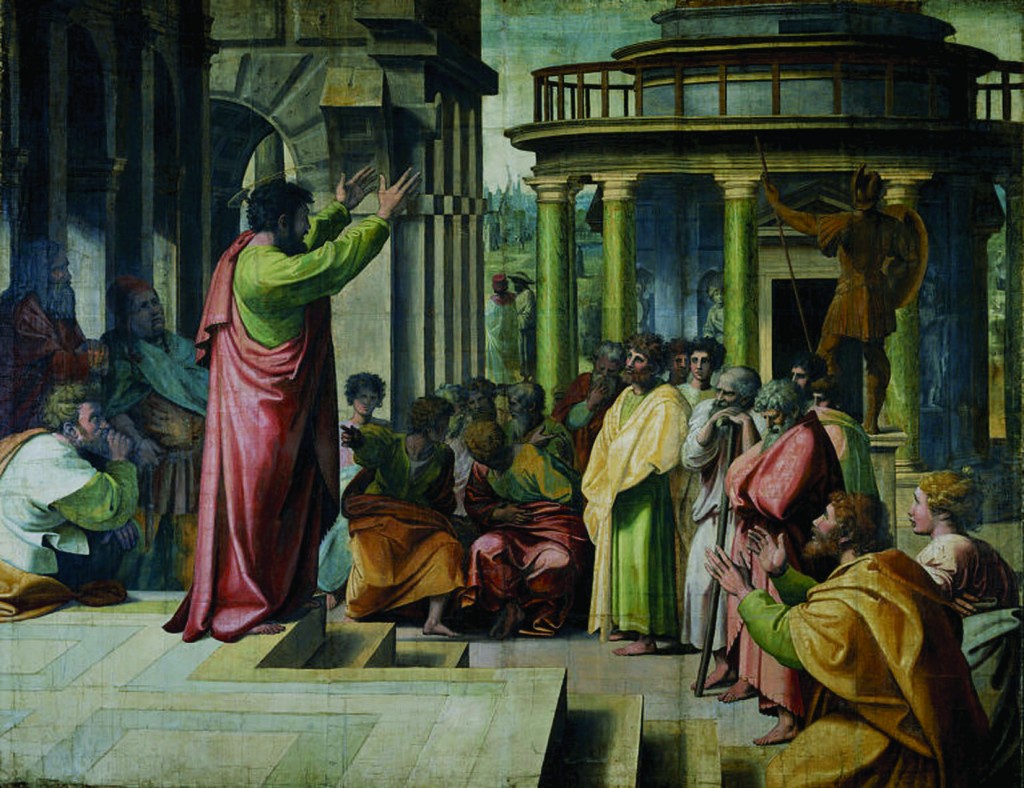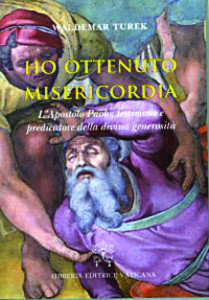“The faith of the Apostle Paul is the experience of being loved by Jesus Christ in a totally personal way; it is the consciousness of the fact that Christ has faced death not for something anonymous, but for love of him — of Paul — and that, as the Risen One, He still loves him, that is, that Christ gave himself for him. His faith is to be struck by the love of Jesus Christ, a love that overwhelms him to his depths and transforms him. Thus, this very faith is love for Jesus Christ.”
With these words, on June 28, 2008, Pope Benedict XVI opened the Holy Year dedicated to the Apostle of the Gentiles on the occasion of the 2,000th anniversary of his birth.
During that year, Polish scholar Waldemar Turek presented his reflections in a long essay entitled Encounters with the Apostle of the Gentiles, published in his native language by the press of the Diocese of Plock in Poland. Those spiritual and pastoral considerations on the life and activity of St. Paul have now been picked up again and expanded by the author on the occasion of the Extraordinary Jubilee of Mercy.
The new work is now out in Italian from the Vatican Press under the title “I Have Obtained Mercy”: The Apostle Paul, Witness and Preacher of the Divine Generosity (pp. 172, € 12).
A study of the vicissitudes of the Apostle’s life can be helpful for our own relationship with God, who manifests an extraordinary generosity towards every man. The Pauline letters show all the richness and complexity of their author who in the various events of his life — which was not without difficulties — was guided by and through God’s mercy into an ever more mature faith. St. Paul does not hide in his Letters the fact that he was not an exemplary human being before becoming a Christian.
Reflecting on that period of his life, he tries to interpret it in various ways, such as one step in a long spiritual journey that, in a totally unexpected way, led him to encounter the Risen Lord. In this sincere reflection, St. Paul, sometimes in a systematic, sometimes in a very spontaneous way, states that he obtained mercy “because Christ Jesus wished in me to show, first, the greatness of his magnanimity, and I was an example to those who would come to believe in him in order to have eternal life” (1 Timothy 1:16).
With this letter to Paul’s “beloved disciple,” Timothy, one enters the core of the testimony and the teaching of the Apostle Paul about the mercy of God: if God can show mercy to someone like Saul who persecuted the Church founded by Christ, God can show mercy to anyone. In his letters, then, Paul wishes to present the Christian God above all as a God rich in mercy.

St. Paul delivering the Areopagus Sermon in Athens, by Raphael
Paul goes on, in various contexts, to describe the mercy granted to him, with special emphasis on certain moments of his life and his activities.
Finally, Paul expounds the nature of this mercy that is offered to believers in Christ.
These are the three points Turek develops as he discusses the rich material that we find in the Pauline Letters, and in some other books of Scripture which the Apostle cites.
Waldemar Turek is a priest of the Diocese of Plock (Poland). He has a degree in Christian and Classical Literature, Theology and Patristic Sciences. He is an official of the Vatican Secretariat of State and Visiting Professor in the Latin Language Section of the Pontifical Urban University in Rome. He is the author of various publications related to classical ancient writers and the Fathers of the Church.





Facebook Comments